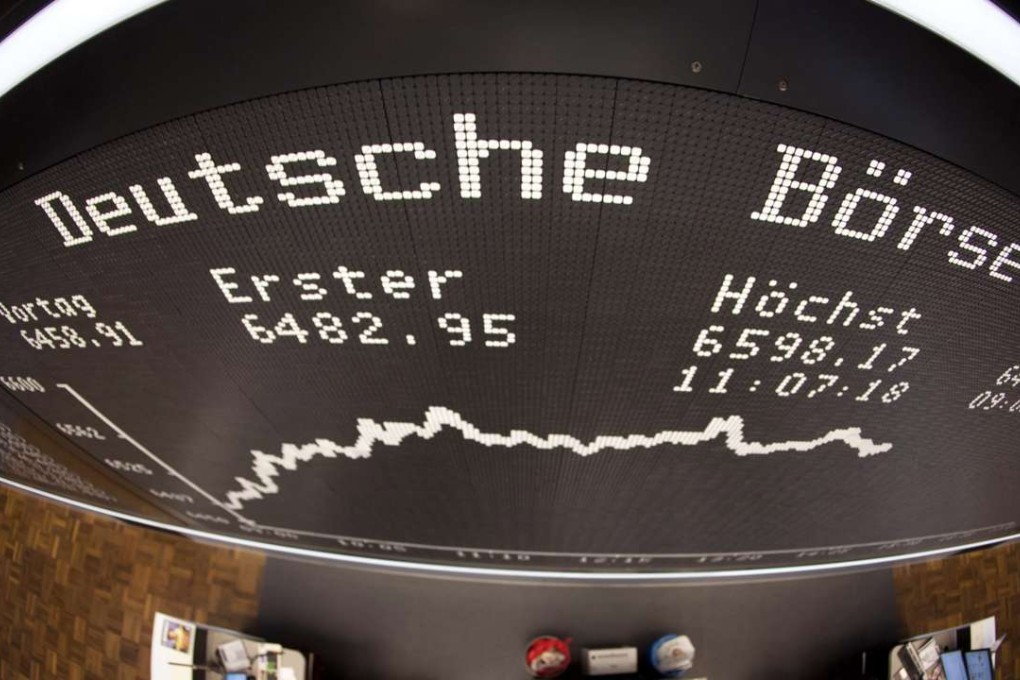Across The Border | Shanghai Stock Exchange spreads its net further through joint trading of ‘D-shares’ with Frankfurt
Reports suggest about 10 companies will initially receive the go-ahead to float D-shares in June

The Shanghai Stock Exchange is making further efforts to internationalise its business after a senior official unveiled plans to launch a so-called “D-share” market to trade yuan-denominated shares in Frankfurt, Germany.
Que Bo, a vice president of the bourse, said that a first batch of mainland companies will be traded on the China Europe International Exchange (CEINEX) – a joint venture between Deutsche Boerse AG and two Chinese exchanges that went live last month – in Frankfurt this year, creating a new listing venue for Chinese firms, according to the 21st Century Business Herald.
The joint-venture trading platform was created by the Shanghai Stock Exchange, China Financial Futures Exchange and Deutsche Boerse in November 2015, on which offshore yuan-denominated products including stocks, bonds and exchange-traded funds will be listed.

Shares in mainland companies to be traded on the CEINEX will fall into the category of D-shares.
The vice president didn’t elaborate on which companies would receive the green light from both the Chinese and German regulators to start trading on the D-share market, however.
But mainland companies will be allowed to either launch initial public offerings (IPOs) or place new shares on the CEINEX.

